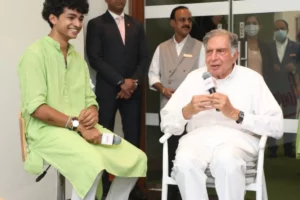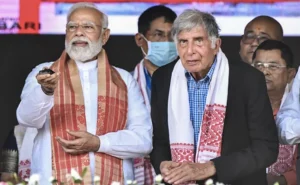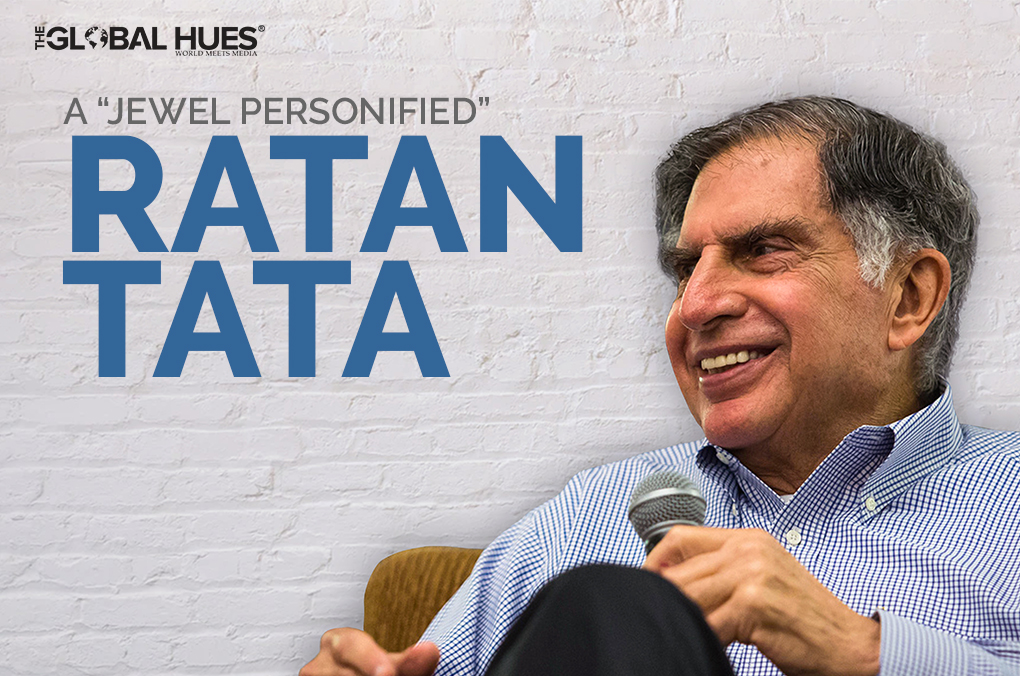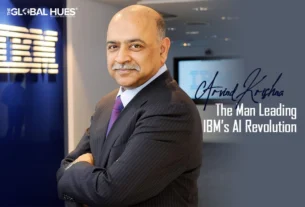“Business needs to go beyond the interest of their companies to the communities they serve.”
Ratan Tata
A report published in 2019 claimed that nine out of ten startups fail within the first year of their inception, and only ten per cent of the remaining manage to survive and make profits. In an age of hyperconsumerism, when there is no dearth of business ideas, and when there is an abundance of companies that could fund a startup, it is becoming increasingly difficult for founders and CEOs to manage survival. All it takes is an idea and some capital to launch a startup, but it requires an entrepreneur and a leader like Ratan Tata to make a business self-sustainable and successful.
Ratan Tata is an entrepreneur with ethics – his projects are developed vis-a-vis the needs of the common man and also of the country. And this is a rare quality! In their attempts to please the board/shareholders, Chairmen and CEOs end up being myopic. Ratan Tata never committed this mistake and that’s what makes the Success Story of Ratan Tata worth reading.
Once he sat on ‘that much-coveted chair’, he brought in a few fundamental changes in the very character of the Tata Group – one elemental change was the infusion of young talent. In many ways, his entry marked a tipping point in the Indian entrepreneurial landscape. In one of his interviews, the ex-chairman of the Tata group remarked that he invested the first few years of his chairmanship in just creating space for the ‘new’ to take over.
Dynamism as a businessman and compassion as a citizen are two qualities that make Ratan Tata stand out from the rest. Be it Tata Nano or the acquisition of Jaguar Land Rover, he was known for taking bold and unprecedented decisions. During his reign, it ought to be noted that the revenue of the Tata group grew over forty times.
| Net Worth | $1 Billion |
| Monthly Income | 90 Crore + |
| Date of Birth | December 28, 1937 |
| Age | 84 years |
| Residence | Mumbai, India |
| Marital Status | Single |
EARLY LIFE & EDUCATION
Often branded as an Indian-born visionary, industrial tycoon, and philanthropist, Ratan Tata was born in Mumbai on 28th December 1937. He is the son of Naval Tata and Sooni Tata. His father Naval Tata, was the adopted son of Ratanjit Tata and Navajbai Tata. In the play of time, Ratan Tata too was adopted by his grandmother, Navajbai Tata, following the divorce of his parents in 1948. He had to undergo a lot of ragging and humiliation at school due to the separation of his parents as ‘divorces’ were uncommon back then. Devoid of a functional family, his grandmother instilled a strong value system and ethics in him as a boy. He recalls how she had taught him how to always voice his opinions but in a dignified manner.
He got schooling from Campion School, followed by Cathedral and John Connon School, Mumbai. Some years were also spent in the Bishop Cotton School of Shimla. In 1959 he received a degree in Architecture from Cornell University. Right after college he got into a job and spent some of his best years in Los Angeles. In one of the interviews, he revealed that he had fallen in love with a girl in Los Angeles but the relationship had to end as her parents did not allow her to visit India with him when he had been unexpectedly summoned due to his grandmother’s failing health.
JOURNEY WITH TATA GROUP
The success story of Ratan Tata started taking shape in 1961 when he returned back to India and joined the Tata Group. He was initially appointed to work with Tata Steel Limited in Jamshedpur where he worked under different departments within a span of 6 months. In one of the interviews, he revealed that the other employees perceived him as a part of the Tata family and did not hold him accountable for anything. He claims to have spent the entirety of those 6 months simply trying to make himself ‘look’ useful.
As an apprentice on the shop floor, his duties involved handling furnaces and shovelling limestone. After acquiring that experience, he joined the management as the director of National Radio and Electronics (NELCO). Initially, he succeeded in elevating the company out of a slump but owing to an economic slowdown, the company collapsed again.
Thereafter, he was handed over another sinking company to save – the Mumbai-based Empress Mills. However, the management’s refusal to allow an investment of 50 lakhs in it along with the textile worker’s strike eventually lead to its complete shutdown in 1986. He was finally appointed the chairman of Tata industries in 1991 by JRD Tata. This came as a surprise to many as there were a bunch of other, more established, and competent executives in the race of becoming the successors. Some of them are – Russy Mody of Tata Steel, Ajit Kerkar of Taj Hotels, Darbari Seth of Tata Tea, and Tata Chemicals. Many of them openly protested against the appointment of Ratan Tata, calling it a clear case of nepotism.

Also Read: Tata Group: An Indian Empire worth $100 billion
MAJOR REFORMS UNDER RATAN TATA’S LEADERSHIP
Under the leadership of Ratan Tata, group companies were made to pay certain royalty for using the Tata brand name. Additionally, it became mandatory for individual companies to report operationally to the group office.
During his tenure, the Tata group was seen exiting industries such as textiles, cement, cosmetics, etc, and venture into telecommunications, software, retail, and finance.
One of the very initial reforms regarding the employees was concerning the retirement age. He set up a company policy, according to which the retirement age for senior executives was set at 65 and directors at 70. This move ensured the company benefitting from newer and younger talent. With all these reforms, Ratan Tata was able to re-establish the identity of Tata groups in a cohesive manner.
RATAN TATA’S SWEET REVENGE ON FORD
Ratan Tata’s dream of creating an all-Indian passenger car and entering the vehicle market came true in 1998 with Tata Motors Indica. Unfortunately, it proved to be a total failure and put a lumpsum financial burden on the Tata group within the first year of its launch. The company Ford expressed its interest in buying the drowning venture and invited Ratan Tata and his officials for a team meeting in Detroit regarding the same.
The three-hour meeting proved that Ford had simply feigned interest in buying the company. There was much humiliation that Ratan Tata had to face at the hands of the Ford officials who shamed him for getting into the passenger vehicle venture without complete knowledge about it. The deal was called off and the humiliation stayed with him for a long period of time.
After returning to Mumbai, he researched the vehicle industry for a few years and finally came up with Indica V2- which initially faced criticism at the hands of auto analysts but its powerful engine, brilliant fuel economy, and great marketing technique contributed to making it a best seller. Ironically, as Ford was staggering in bankruptcy a few years later, Ratan Tata took over the company’s iconic brands- Land Rover and Jaguar for 2.3 billion dollars.
Read the Biography of Elon Musk
NET WORTH OF RATAN TATA
Indian business tycoon Ratan Tata’s net worth is $1 billion. Everyone knows he is not the richest man on Earth but everyone would agree that he is rich at heart. 66 per cent of the company’s and family’s fortune goes to the charity. Ratan Tata via his relentless contribution to the nation, has proved that being on the Forbes Billionaires List doesn’t make one rich. What matters at the end is how much you are able to give back to the society.
RATAN TATA INVESTMENT IN GOODFELLOWS
Ratan Tata has invested an undisclosed amount in Goodfellows, a for-profit start-up that aims to provide companionship for senior citizens in India. Founded by Shantanu Naidu, General Manager at Tata’s office, the startup promotes friendship between senior citizens and young graduates.

During the launch of Goodfellows in August 2022, Ratan Tata made a heart-touching remark which went viral on social media. He said, “You do not know what it is like to be lonely until you spend time alone wishing for companionship”.
As per different reports, the startup, over the past six months, took time to complete a successful beta test. Goodfellows will now be available in Mumbai with Pune, Bangalore, and Chennai.
TRUSTEE OF PM CARES FUND

Ratan Tata along with former Supreme Court judge KT Thomas, and former deputy Lok Sabha speaker Kariya Munda became the trustees of PM Cares Fund (Prime Ministers Citizen Assistance and Relief in Emergency Situations Fund). Prime Minister Narendra Modi said that the appointment of new Trustees and Advisors will provide wider perspectives on the operations and functioning of the PM CARES Fund.
PHILANTHROPIC ACTIVITIES
Ratan Tata could have easily been the richest person in India if he was not involved in various philanthropic activities. Tata Hall based in California is known to coordinate research between San Diego and India to assist infrastructural development in combating vector-borne diseases. It is the result of a generous 70 million dollar gift from Tata Trusts. Tata Education and Development Trust is a philanthropic venture of the Tata group which provides a 28 million dollar scholarship fund for undergraduates in India to study at Cornell University.
The group has also donated 50 million dollars for the construction of an executive centre at Harvard Business School. TCS donated around 35 million dollars to Carnegie Mellon University. Also, the Tata group formed the Tata Centre of Technology and Design at the Massachusetts Institute Of Technology to assist the problems faced by resource-constrained groups, especially in India. Ratan Tata has also provided relief to the victims and their families during the 26/11 Taj Hotel attack.
He has received around 40 awards from various prestigious institutions including the Padma Bhushan in 2000 and Padma Vibhushan in 2008, the third and second-highest civilian honours offered by the Indian Government.
CONCLUSION
66% of Tata groups equity is used to assist various philanthropic activities. With the onset of the covid crisis in March 2020, he donated a lump sum amount of 2,500 crore rupees for crisis relief during both waves. Ratan Tata chose to remain a bachelor throughout his life. He is somebody who usually avoids the limelight and values privacy. Music, good literature, and his pet dogs are the most beloved and intimate portions of his life. Ratan Tata is a man whose name and achievements have been equally magnanimous. Started from the root and now the roof of the entire Tata Group, a man like Ratan Tata can’t be found.




